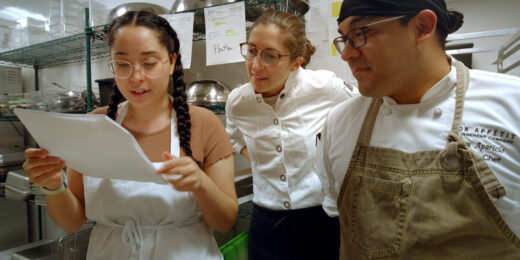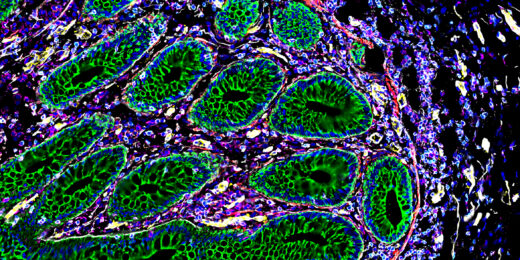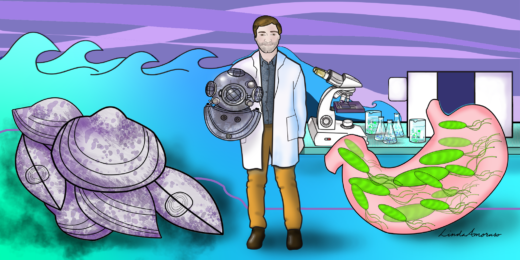Our researchers picked cells from all over the human body — cells of all shapes, sizes and abilities. From the brain to the heart to the intestines.
Category: Internal Medicine
Paying back her people: New doctor has plans to return to her African village
Bongeka Zuma, graduate of Oprah Winfrey’s academy and Stanford School of Medicine, discusses her plans to advance medical care in her hometown.
A hunger to help people brought her to both surgery, cooking
Carlie Arbaugh is dedicated to both surgery and cooking because they demand meticulous attention to detail and the ability to think on your feet.
It’s a beautiful day in the intestinal neighborhood
Researchers have mapped the human intestine at the level of individual cells, showing how cellular neighborhoods work together in the gut.
Stomach cancer hits Asian populations harder
Over the past six decades in the U.S., gastric, or stomach, cancer rates have plummeted. But around the world, gastric cancer remains a leading cause …
Unconventional Paths: From the deep sea to the stomach
Benedikt Geier traverses academic fields in pursuit of a chemical analysis that images the intimate relationships between microbe and host.
Precision medicine predicts best ulcerative colitis care for teens
Stanford researchers are developing a faster way to match each ulcerative colitis patient with the treatment that will work best for them.
Bill, supported by Stanford doctor, guards against hepatitis
A Stanford Medicine doctor helped write and support legislation to enable free hepatitis B and C screenings for those who request it.
Tracking the progression of liver disease in a dish
Stanford Medicine researchers are creating models of livers in a dish -- organoids -- to better understand liver disease.
Elite gastroenterologist’s path to being a champion of diversity
As an African American who also has a disability, Eric Sibley provides a role model for others within academic medicine.
Earlier colonoscopies halve subsequent cancer risk
People who have their first colonoscopy between the age of 45 and 49 halve their risk of subsequent colorectal cancers, a Stanford Medicine study has found.
Data from twins suggests that gut bacteria are important in food allergies
A Stanford-led study of twins with and without food allergies has uncovered differences in the fecal bacteria of allergic and non-allergic individuals.
Identification of “missing microbe” spurs clinical trial in ulcerative colitis
A study links ulcerative colitis to the depletion of important acids ordinarily produced by a set of gut microbes mysteriously missing in action.
Reservoir bugs: How one bacterial menace makes its home in the human stomach
Helicobacter pylori, a potentially nasty bacteria, somehow lives in one of every two human stomachs -- no mean feat. Here's how the bug pulls it off.
Patient finds relief in treatment for chronic esophagus inflammation
A Stanford medicine patient regains quality of life after receiving treatment for his rare inflammatory esophagus condition.
















